Myth #11 – I was injured in an accident and I am entitled to a big payoff.
Liebeck v McDonald’s. It was a personal injury case from the United States that you may remember. Mrs. Liebeck spilled a cup of hot coffee purchased from McDonald’s in her lap. She suffered third degree burns and required hospital treatment including skin grafts.
While her injuries were significant enough to require hospitalization and were certainly painful, they were by no means serious or life threatening.
Nonetheless, a New Mexico jury awarded her $2.86 million in damages. The Liebeck case and others like it seem to have led to a misperception that if you are personally injured you can potentially sue for a large award in damages.
However, this is not usually the case in Bermuda. Being injured in an accident is terrible and can often be traumatic. It is also a terrible inconvenience.
You may miss work for a period of time while you recover and may not be paid your usual wage.
You will likely have medical expenses that you did not anticipate. You will endure pain and suffering while recovering.
Whilst Bermuda law recognizes that an injured person is entitled to money damages when he or she has been injured in an accident and another party is responsible, the key concept underlying those damages is compensation to the injured party.
Except in very unique and unusual circumstances, the Court does not look to punish the person responsible for the accident by ordering them to pay additional sums of money to the injured person.
As such, if you have been injured in an accident due to the fault of another, save for some narrow exceptions, you can expect to receive money to compensate you in the following areas:
1. Loss of Wages. If you have been unable to attend work due to your injury, and as a result have lost income, you are entitled to be compensated for that lost income. That income will include your usual wage and any overtime that you agree to work in the ordinary course.
2. Medical Expenses. You are entitled to the repayment of any medical expenses that you incurred as a result of the injury for which you would not have otherwise been responsible. This might include co-payments for which you are responsible in accordance with your medical insurance plan, payments for prescription medication or physical therapy to assist in your recovery. Remember to keep receipts for all expenses related to the injury as you incur them. You will need them to prove that you are out of pocket.
3. Pain and Suffering / Loss of Amenity. Compensation for this type of loss recognizes that the injured person should be paid a sum for the discomfort resulting from the injury along with the inability to live one’s day-to-day life normally whilst recovering. The interesting part is how the Court determines the amount to be paid under this head of damage. It is easy to determine how much an injured person should be compensated for medical expenses, but what amount can be ascribed to a broken leg and the pain associated with that injury?
In reaching this decision, the Bermuda Court will look to a UK publication known as the Judicial Studies Board Guidelines for assistance. The Guidelines provide a summary of damages awarded in personal injury cases in the United Kingdom and express the summary as a monetary range for any particular injury. While the Guidelines are just that, a guide, they establish the usual ranges of damages that an injured person is awarded for pain and suffering. They take into account the part of the body injured, the severity of the injury and whether the injured person makes a full recovery or is left with lingering after effects as a result of the injury.
While the damages to which you are entitled may not make you rich, they can help you get back to where you were before the injury.
Consider contacting an attorney to discuss the circumstances surrounding the accident, your injuries and what damages you might expect to receive from the party at fault.
You may not receive the type of windfall the jury thought Mrs. Liebeck should receive, but you can be compensated so that you are put in a position as near as possible that you would have been in had the accident not occurred.
This article has been written by Kevin Taylor, who is the managing director, and he works with the Litigation and Advice Group, at Marshall Diel & Myers Limited. Mr Taylor may be contacted at kevin.taylor@law.bm or via phone at 441-295-7105.




